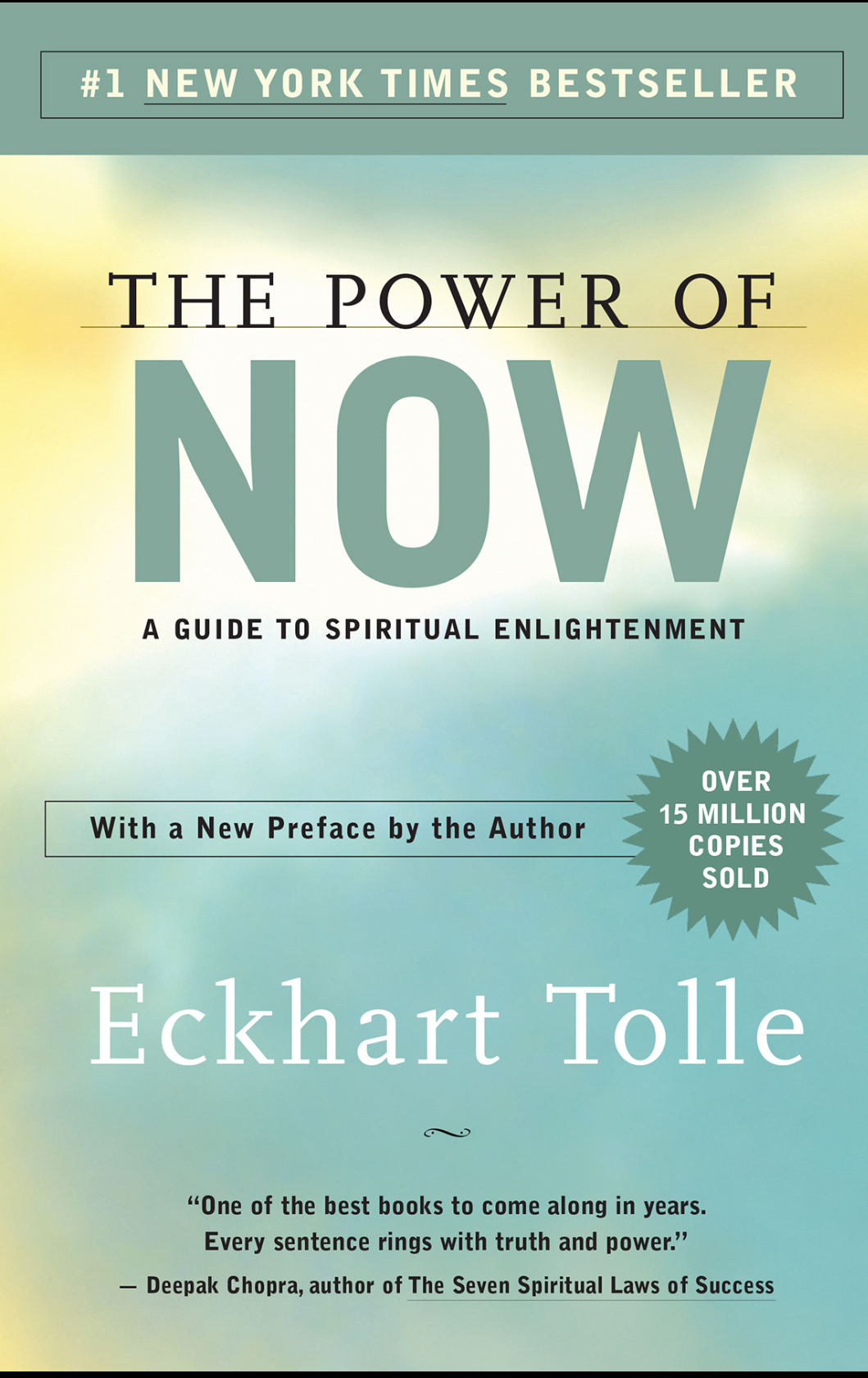Eckhart Tolle’s The Power of Now sells a seductive idea: your suffering exists because you live anywhere but here. The past is memory, the future is projection, and both are illusions manufactured by what Tolle calls the “ego”—the false self constructed from accumulated psychological time. Freedom, he argues, lies in collapsing into the present moment so completely that the thinking mind falls silent and you discover the consciousness beneath thought itself.
It’s not a new idea. Buddhism has been saying something similar for 2,500 years. Advaita Vedanta frames it as recognizing the illusory nature of the separate self. Christian contemplatives like Meister Eckhart and The Cloud of Unknowing point toward wordless union with the divine ground of being. What Tolle does—and what made this book a phenomenon—is strip the terminology down to something accessible. No Sanskrit. No theology. Just: stop thinking, be here, notice the space between your thoughts, and discover you are not your mind.
The book works in layers. On the surface, it’s self-help: breathe, feel your hands, notice the aliveness in your body, practice presence. Underneath, it’s radical ontology. Tolle isn’t offering techniques for stress management. He’s claiming that identification with thought is the root pathology of human existence, that what you call “I” is a cognitive mirage, and that awakening from this illusion is both possible and urgent.
He’s particularly compelling on what he calls the “pain-body”—the accumulated emotional residue that lives in us and feeds on drama, conflict, and unconscious repetition of old wounds. Anyone who has watched themselves pick the same fight for the twentieth time or felt an emotional reaction wildly disproportionate to the present moment will recognize this. Tolle describes it as a semi-autonomous entity that takes over when triggered, and while the language is metaphorical, the phenomenon is real. We do carry unmetabolized suffering. It does hijack us. And it does seek situations that confirm its narrative.
Where Tolle diverges from traditional contemplative paths is in his impatience with gradual development. Buddhism offers the Eightfold Path, years of practice, stages of insight. Christian mysticism speaks of purgation, illumination, union—a long interior journey. Tolle suggests you can step out of psychological time right now, this moment, by simply choosing presence over thought. Just notice. Just be. The ego will dissolve if you stop feeding it attention.
This is both the book’s strength and its limitation. For someone in acute psychological suffering, the invitation to presence can be genuinely liberating. The realization that you are not your thoughts—that there is awareness prior to and independent of mental content—is transformative. Tolle gives people permission to stop believing every story their minds generate, and that permission can create space where there was only claustrophobic narrative.
But the framework also flattens complexity. Tolle talks about the ego as though it’s always false, always problematic, always something to transcend. There’s little room here for the ego as developmental necessity, as the structure that allows coherent selfhood, as the thing you need before you can afford to release it. His psychology is simplistic: if you’re suffering, you’re identified with thought. If you’re present, you’re free. The messiness of trauma, attachment, neurobiology, and the slow work of integration gets compressed into a binary of presence versus absence.
He also underestimates how much presence itself can be weaponized. “Be here now” can become spiritual bypassing—a way to avoid legitimate grief, justified anger, or necessary action. The ego isn’t always wrong. Sometimes your thoughts are telling you true things about injustice, danger, or what needs to change. Tolle’s framework can make it hard to distinguish between neurotic thought loops and legitimate discernment.
Still, there’s something here worth taking seriously. The endless churning of psychological time—the way we live in regret and anxiety, rehearsing past grievances and future catastrophes—is suffering. The identification with mental narrative is real. And the possibility of finding awareness beneath that narrative, a stillness that holds everything without being defined by anything, is not illusion.
The Power of Now won’t give you a complete contemplative path. It won’t address the complexities of psychological development or the slow work of healing. But it will offer you an entry point: the radical simplicity of noticing you are here, breathing, alive, aware. Whether that’s enlightenment or just a moment of relief depends on what you bring to it and how honestly you’re willing to sit with what remains when the noise stops.
The present moment is always available. The question is whether you can stay there without using it as one more escape.

